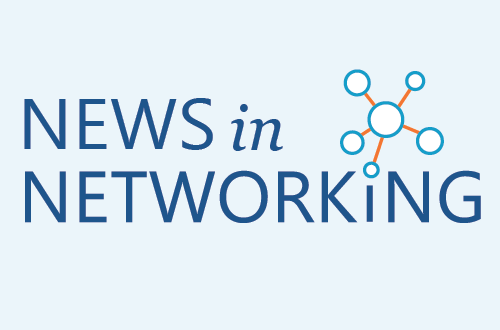News in Networking: Cisco Without Chambers, CCleaner Malware & Programmable Networks

Summary
Cisco Chairman John Chambers announced this week that he will not seek re-election. The networking giant also announced a partnership with Viacom. Meanwhile, Cisco researchers found that the CCleaner malware was targeting at least 18 tech companies. More after the jump…
This week’s top story picks from the Kentik team.
Cisco Chairman John Chambers announced this week that he will not seek re-election. The networking giant also announced a partnership with Viacom. And Cisco researchers found that the CCleaner malware was targeting at least 18 tech companies. A busy week for that company and the others below.
Here are the headlines we’re reading this week:
- The John Chambers Era Is Ending at Cisco (Light Reading)
Cisco Chairman John Chambers announced this week that he will not seek re-election. CEO Chuck Robbins is expected to be named chairman at the shareholder meeting in December. - Cisco Inks Video Delivery Deal With Viacom (Light Reading)
In other Cisco news, this week the networking giant announced a partnership with Viacom “to build a versatile video network foundation that will enhance Viacom’s distribution of its premier branded content across multiple linear, digital and mobile screens for viewers in the U.S., Canada, Mexico and the Caribbean.” - CCleaner Malware Fiasco Targeted At Least 18 Specific Tech Firms (WIRED)
Following news that hundreds of thousands of companies were hit with the CCleaner malware, Wired now reports that Cisco researchers found “the hackers had attempted to filter their collection of backdoored victim machines to find computers inside the networks of 18 tech firms, including Intel, Google, Microsoft, Akamai, Samsung, Sony, VMware, HTC, Linksys, D-Link and Cisco itself.” - AWS will Charge by the Second, Its Biggest Pricing Change in Years (CNBC)
According to CNBC, Amazon’s price change “comes four years after Google outdid AWS with per-minute pricing. Historically AWS has charged by the hour for its EC2 cloud computing service.” - DigitalOcean Launches Scalable Spaces Object Storage (SDxCentral)
Cloud services provider DigitalOcean added scalable object storage to its product line this week. “Object storage has been “one of the most requested products that we’ve been asked to build,” the company said. - Database Provider MongoDB Files to Go Public (TechCrunch)
Ten years after being founded, document database provider MongoDB has filed for IPO. The company “brought in $101.4 million in revenue in the most recent year ending January 31, and around $68 million in the first six months ending July 31 this year,” reports TechCrunch. - Telstra Lays Out Roadmap for Programmable Network (ZDNet)
Australian telco Telstra announced this week its plans to add virtualized customer premises, pre-designed templates, managed services, and dynamic real-time control of IP VPN networks to its programmable network over the next few months. - Hewlett Packard Enterprise to Cut 10% of Workforce (Wall Street Journal)
HPE announced plans to reduce its workforce by 10 percent, or about 5,000 jobs. This is part of HPE Next initiative, “a three-year plan announced in June to take out $1.5 billion in gross costs and shift resources toward areas such as research and development,” according to the Wall Street Journal. - You Might Use AI, But That Doesn’t Mean You’re an AI Company (VentureBeat)
“You’re not an AI company because there are a few people using a few neural networks somewhere,” said Andrew Ng, a founder of the Google Brain team and expert in the space. “It’s much deeper than that,” we went on to tell VentureBeat. - How to Get One Trillion Devices Online (MIT Tech Review)
Chris Doran of ARM, the company that designs smartphone chips, explained to MIT Tech Review why security is the biggest obstacle for the Internet of Things. The Cliff Notes: “Computing is shifting from who’s got the most performant device to who’s got the most energy-efficient device, and the next step will be who’s got the most secure device.” - 2017 Storms May Mean Network Rethink (Light Reading)
Gil Santaliz, founder and managing director of New Jersey Fiber Exchange, told Light Reading, “The impact of storms such as the U.S. and the Caribbean have seen this fall isn’t in the damage done to cables or even cable landing stations. It’s in what happens to traffic after it leaves those places.” The publication reports that Santaliz is “expecting the global industry to take a long look at how traffic is managed going forward.”
Until next week, follow us on Twitter and LinkedIn to see more of these headlines in real time.
